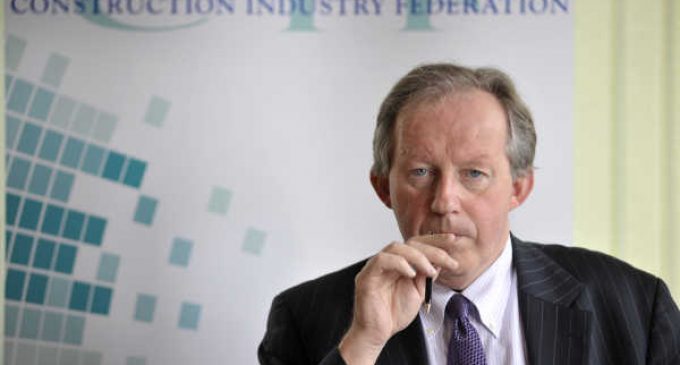CIF proposes radical overhaul in how infrastructure is delivered in Ireland

A CIF report, carried out by DKM Economic Consultants, has proposed an urgent and radical overhaul to how infrastructure is delivered in Ireland. The report warned that Ireland’s historically low levels of investment in infrastructure threatens Ireland’s economic recovery and could undermine growth in other sectors, such as technology, financial services, pharmaceutical, whilst also leading to social inequality arising from housing shortages and imbalanced regional development.
The report, entitled ‘Enhancing Ireland’s Infrastructure’ shows how Ireland’s capacity to deliver infrastructure projects is negatively affected by political decision-making and proposes the establishment of a National Infrastructure Commission to support objective decision making in Government on selecting projects. The report also warned that significantly more investment was required to meet the needs of Ireland’s population, the fastest growing in the EU, and its economy, the second fastest growing in the EU27. Currently, Ireland is last in the EU27 for direct Government investment in infrastructure.
Director General, Tom Parlon said: “The infrastructure deficit has the potential to undermine the economic recovery. So, firstly, significantly more investment in infrastructure is required. However, we must improve how we invest in infrastructure and how we evaluate projects and their benefits to all society. Infrastructure investment needs to be made with a 10-15 year time horizon in mind – we should build infrastructure for the next generation. However, our political system works against this type of long-term thinking. We’re proposing that an infrastructure commission is established to take a long-term view, to critically evaluate projects and ultimately direct successive Governments’ investment on infrastructure. We’re asking the Government to adopt approaches similar to those used by Canada, Australia and the UK where the delivery of critical infrastructure is less politicised, more cost-effective and ultimately more beneficial for society.
DKM’s analysis shows that there is only €350million per year up to 2021 to invest in new infrastructure projects. Whilst the figures quoted in the Public Capital Programme are vast, the proportion that is spent on new productive infrastructure, for example, roads, rail, broadband, schools, hospitals is reducing each year. DKM’s estimates of the amount of additional funding available (€350m per year up to 2021) could be absorbed by just one of the critical strategic projects that needs to be undertaken.”
Amongst the recommendations made in the report, the CIF calls on the government to ensure that public capital projects are prioritised with reference to rigorous cost/benefit analyses and with greater cognisance of social, environmental and economic needs.
Tom Parlon said: “An increasing amount of the Public Capital Programme is spent on maintenance of significantly depreciated stock and 40% of the ‘capital’ is not being spent on productive or social infrastructure ie. roads, rail, schools.
Increasing infrastructure investment is imperative for the sustainable and balanced development of Ireland’s economy and society. The Irish population has grown by 30% in one generation and our economy was the fastest-growing in the EU for the last four years. However, capital investment has reached a long-term average low of around 2 per cent GDP since 2008; down from 5 per cent throughout the early 2000s. Ireland is now the bottom-ranking EU country in terms of capital investment, and successive EU Commission reports have highlighted infrastructural deficiencies as a threat to Ireland’s long-term growth.”
The Enhancing Ireland’s Infrastructure report calls on the government to increase infrastructure investment through:
- Securing a relaxation on the fiscal constraints imposed by the EU.
- Using PPPs more effectively and securing other sources of finance such as the EIB.
- Improving the procurement processes to deliver better value for money for the state.
- Increasing the transparency of public sector infrastructure spending and upcoming projects.
- The Construction Industry Federation is calling on the government to increase establish a national infrastructure commission, similar in set-up to the Irish Fiscal Advisory Council, whose role would be to advise on strategic infrastructure and improve delivery and prioritisation of projects, ensuring that every project undergoes a serious cost-benefit analysis.







